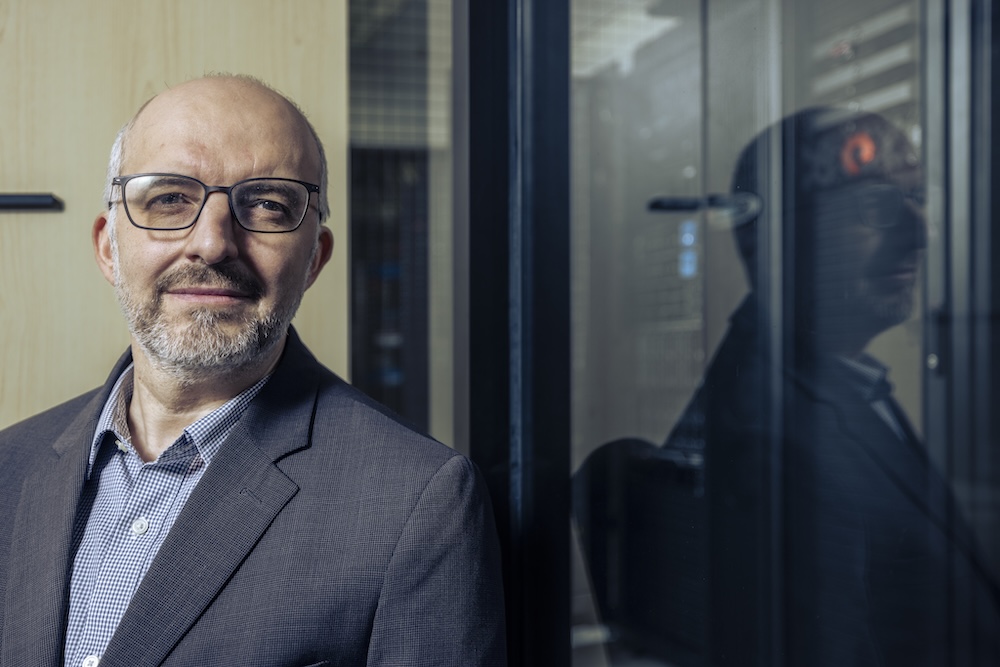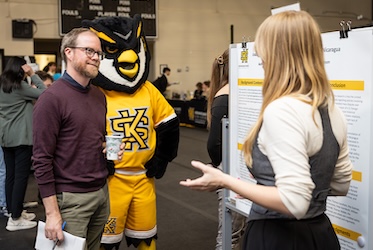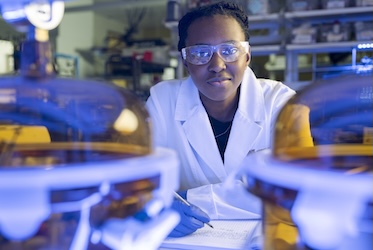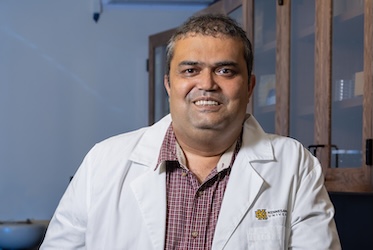
Building the future of STEM research: High-speed networking and data infrastructure at Kennesaw State
KENNESAW, Ga. | Feb 4, 2025

Ramazan Aygun, director of Research Computing and associate professor of computer science, received funding for his project, “Advancing High-Speed Networking for STEM Research and Educations at Kennesaw State University,” and aims to establish a state-of-the-art research network at KSU that includes science DMZs and a Data Transfer Node (DTN) server.
A science DMZ is a network segment designed to support scientific research that remains separate from the general campus network to limit interference from regular internet traffic. It also allows safe data transfers without jeopardizing the remainder of the campus network.
Additionally, DTN servers provide a consolidated path for the transfer of large files between researchers or institutions.
Ultimately, Aygun is facilitating access to secure and fast data transfer with specialized servers that can manage large volumes of data, which is common in research projects.
The grant is Aygun’s second in this area, with the first coming in 2022 after he noticed that there was a need for a higher volume of data storage at KSU. That allowed Aygun to build a storage system at KSU as well as to join the national storage ecosystem, the Open Science Data Federation.
This ecosystem enabled researchers to share their data sets faster and easier.
“The larger the data set, the more difficult it is to share, but the ecosystem enables researchers to share their data sets more efficiently,” Aygun said.
Aygun requested more than seven petabytes of storage from the OSDF. A single petabyte is equivalent to one thousand terabytes or one million gigabytes.
To put that into perspective, phones typically come with 128 gigabytes of storage, so there is about 7,812 smartphones worth of storage space in only one petabyte.
To make these changes, KSU needed higher-speed internet, so Aygun sent out a survey to the faculty and asked them who needed more bandwidth for their research and made a significant increase to accommodate the change.
“An outcome of this project, which began in December of 2024, is that we are going to be improving the network in five buildings on the Kennesaw campus and five buildings on the Marietta campus,” Aygun said.
On the Kennesaw campus, the following buildings will be improved: Burrus Building, Science Building, Science Laboratory Building, Material Science Building, and the Social Sciences Building.
On the Marietta campus, the following buildings will be improved: Q Building, J Building, G Building, Norton Hall, and the new interdisciplinary STEM building.
“We will provide four hundred gigabits of connectivity to these buildings,” Aygun said. “We are building separate research networks on both campus, which are then connected to the research backbone router.
Aygun’s initiatives will enhance KSU’s research infrastructure, increasing its network speed and data storage, and allowing faster and more secure data sharing. These upgrades will benefit a variety of research projects at KSU, ranging from geo-economic multimodal systems to amphibian genomics and support Ph.D. programs in computer science, interdisciplinary engineering, and data science and analytics, along with 20 master’s degree programs.
Here is a partial list of types of projects that will benefit from this update as provided by Aygun:
- Multi-Protocol Backbone Network (MPBM)
- MPBM Genomic Active Robot Sensing in Agricultural Environments
- Trustworthy Machine Learner
- Geo-economics
- Multimodal Systems
- Advanced Biomedical Research
- Noninvasive Technologies for Healthcare
- High Power, Ultra Short Laser Pulse Propagation
- Self-controlled IoT Sensor Networks
- Mitigating Adversarial Attacks in Remote Sensing
- Stand-up Eye Test Recognition Systems
- Cyber Range Lab to Train Students on Cybersecurity
- Power Distribution Systems
- 911 Mental Health Crisis Detection and Response
Additionally, in order to train KSU faculty and students, the Center for Research Computing offers workshops on utilizing national open cyberinfrastructure resources.
– Story by Alyssa Ozment
Photo by Darnell Wilburn
Related Stories

Kennesaw State student develops AI tools to help first responders diagnose behavioral health issues

Kennesaw State students to present research at Symposium of Student Scholars

Chemistry student engaged in sustainable catalyst research through Kennesaw State's First-Year Scholars program

Kennesaw State researchers awarded Department of Energy grant to investigate materials that boost energy-efficient technologies
A leader in innovative teaching and learning, Kennesaw State University offers undergraduate, graduate, and doctoral degrees to its more than 47,000 students. Kennesaw State is a member of the University System of Georgia with 11 academic colleges. The university’s vibrant campus culture, diverse population, strong global ties, and entrepreneurial spirit draw students from throughout the country and the world. Kennesaw State is a Carnegie-designated doctoral research institution (R2), placing it among an elite group of only 8 percent of U.S. colleges and universities with an R1 or R2 status. For more information, visit kennesaw.edu.














